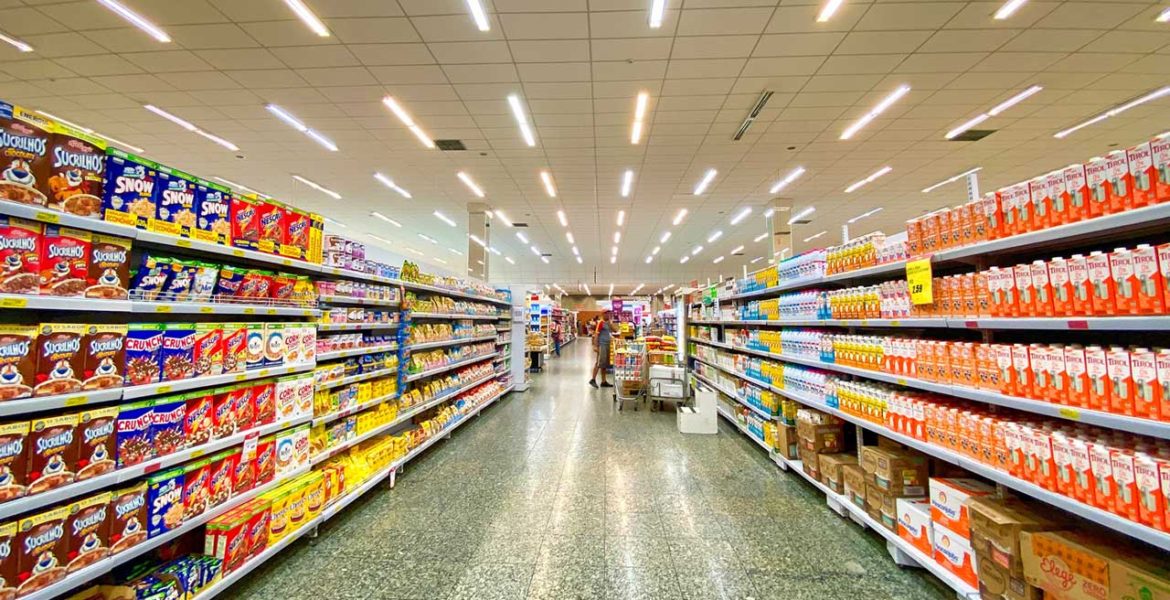By Damian Scragg, General Manager, International, Veritonic
The supermarket sector has remained front and centre during the pandemic, and 2020 proved to be a critical time for supermarket brands to stay in front of consumers. They needed to stay agile, adaptable and current, keeping consumers apprised of openings and reopenings, new safety precautions, new ecommerce offerings, and alternative ways to purchase goods – all in addition to the more routine updates on promotions, sales, and offers. What’s more, they had to convey these updates in a tone and tenor that acknowledged the challenging times without going too far into negative territory.
Audio advertising emerged as a critical channel for this kind of adaptive messaging. In April 2020, Veritonic’s research into the UK supermarket sector showed that supermarket brands were executing this adaptation successfully. Major U.K. supermarket brands responded to the new normal and won over consumers in their audio ads, from messaging (feeding the needy, safe distancing in stores, etc.) to tone (positive without being too high-energy). A study of such ads from supermarkets like Tesco, Morrisons, and Marks & Spencer revealed that their adjustments were successful, generating purchase intent 18% above the category benchmark.
The agile approach to audio advertising helped UK grocers to their largest year-over-year growth in roughly 20 years (Statista, 2021). Continuing that momentum into 2021 will require them to stay nimble, stay responsive, and continue adjusting to a market that is poised for yet more change.
Delivery is Here to Stay – And Nobody’s Won it Yet
Supermarket brands will need to remain front and centre as covid subsides and the UK economy reopens. To do that, they’ll have to adjust to what has become entrenched – if not permanent – shifts in consumer habits. A 2020 Ernst and Young survey showed that 42% of UK consumers believe that the way they shop will fundamentally change as a result of the COVID-19 outbreak, and a December 2020 McKinsey study forecasted that consumers’ preferences for delivery and online ordering may be slow to transition back to in-store shopping. Not only are consumers looking for an opportunity to move online, but retailers may sell more per consumer if they do: further studies estimate that e-commerce orders are more than double the average size of in-store transactions. There’s a huge opportunity for any UK grocer that can effectively capitalise on what is likely to be sustained demand for these new ways to shop.
It’s still an open field. Data shows a stunning 40% of UK consumers said that if supermarket brands advertised more about their delivery services, they would switch to using the service more frequently. When analyzing supermarket ads from the past 6 months, the Veritonic platform’s lexical analysis found less than 10% talking about delivery services. New research from Veritonic, recently presented at Radiocentre’s Tuning In event series, shows that large numbers of shoppers associate major supermarkets with delivery, but at the moment, no one retailer is dominating that consumer mind space. 
With the opportunity for growth in supermarket delivery so substantial and with competition so high, the door is open for one supermarket brand to jump on the opportunity by refocusing their audio ad creative.
Balancing COVID Safety With Other Differentiators
Even though we are already edging on a year into ads referencing ‘these uncertain times,” data shows the effectiveness of certain types of pandemic-related advertising is still strong. Communicating the extra safety precautions that are being implemented in-store is still a critical factor in overall success, and has the potential to lead to new business.
As vaccines roll out and in-store shopping becomes safer, UK grocers will want to continue testing their messaging to find the right balance between discussing safety protocols and touting other perennial benefits like these. The ideal mix is likely to be a moving target that changes over the course of the year.
Adaptable Messaging Remains Critical To Overall Success
Research continues to confirm the importance of tone and message. For all the arguments about the efficacy of targeting and placement, the persuasive power of good messaging is still a huge determinant of overall campaign success. This is demonstrated by consistent evidence of how specific audio ads outperform others in the category. For example, a Marks & Spencer ad about the brand’s commitment to responsibly sourced and local products led to a 10% increase in purchase intent, outperforming other similar ads in the same study.
“Marks & Spencer ad about responsibly-sourced and local products led to a 10% increase in purchase intent.”
Such results underscore the importance of measuring the effectiveness (or lack thereof) of audio creative. This is, even more, the case as grocers in the UK and elsewhere seek to boost their overall marketing efficiency; every pound invested in distributing a lacklustre ad is wasted spend.
Stay Agile and Adaptable
Much like 2020, 2021 will require UK grocers to keep a close ear to how their messages resonate with consumers. There are huge opportunities for the brands that understand the impact and reception of their audio creative – and there is still a real, appreciable downside for those that don’t.

